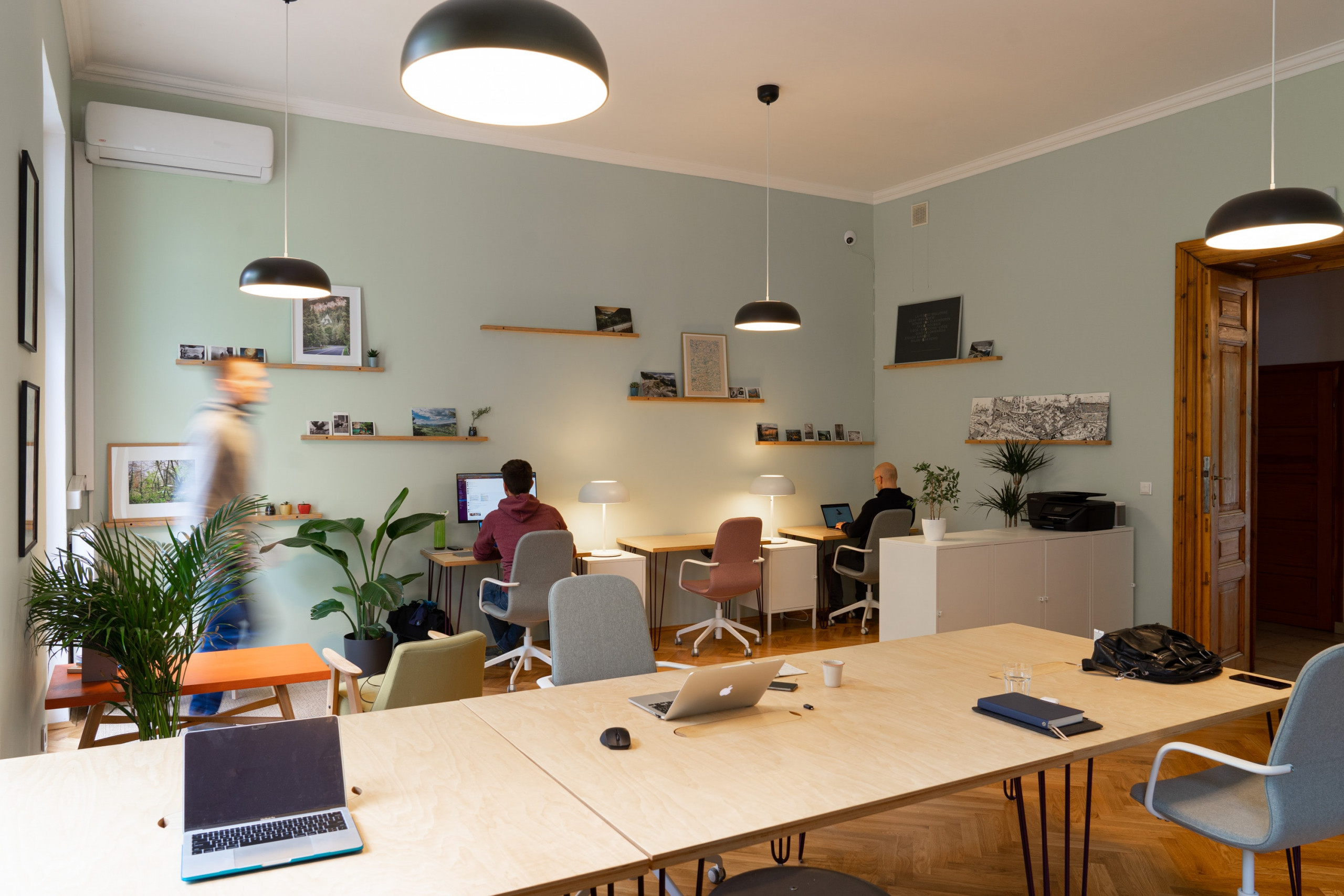National Work Life Week
National Work Life Week is an opportunity for us all to think about work-life balance, for ourselves and our colleagues. As well as a week for us all to think about office wellbeing and what we could all be doing to create better cultures in the workplace.
Work-life balance.
Finding a balance can be quite subjective, what it means to me might look a little different to you. What is important is finding what works for your lifestyle and a ‘balance’ which makes you feel content in the office and at home.
Pre-pandemic, we could leave work and any work-related stress in the office. Many of us could get home and not worry about unopened emails and any upcoming deadlines and project work, but the world has shifted.
Nowadays, many of us are either hybrid or working from home full-time. This can cause a clash between our work and home-life and trying to draw a line between the two can be difficult, especially if we struggle to keep to a routine or have the space for a dedicated office or place to work in the house. If this sounds like you, check out the NHS’s tips on working from home.
So how do we know if our work-life balance is unhealthy?
It is easy to rationalise long working hours when you’re working from home, especially if you don’t have a designated work space. We normalise extra work and time spent on a particularly stressful workload or project, especially if all your colleagues seem to be doing the same. These assumptions and habits can become deep-routed if we don’t take time away to find perspective.
If we do recognise the toll our work is taking on our mental health, it’s not always easy or possible to make too many changes. You might not feel comfortable or confident in speaking up, or you maybe need to work extra hours to pay your bills. But it is important to make changes if we feel able – and here’s how;
Step One: Take a break or a step back.
Sometimes we don’t recognise when work is causing us stress or unhappiness, and other times we are aware but carry on pushing ourselves in hope that it’ll get easier if we don’t think about it.
Taking a break helps us to find a new perspective and gives us an opportunity to think about life and whether it is serving you right now. Some things to ask yourself might be;
- What is causing me stress?
- Is it affecting my work or personal life?
- What are my priorities? And am I losing out on important areas of my life?
Step Two: Adopt a mindful approach.
Whether you’re in the workplace or at home, pay attention to your feelings. You might wish to keep revisiting the questions above and considered whether you feel fulfilled, content, underwhelmed or resentful in your current situation. Being aware of these feeling will help to drive any changes you want or need.
Step Three: Change it up.
You might find that some aspects of your routine or environment aren’t working for you, and that’s ok. An example might be a long commute which makes it difficult to make time for socialising in the evening, or to make time for self-care.
Likewise, if you are in recovery from an eating disorder, you might find that your workplace is not an ideal environment for you right now or your current working hours make it difficult to establish a sustainable routine.
We had a conversation with a service user about their experience of returning to work after a period away focusing on recovery, read it here.
Step Four: Be proactive.
Speak to your manager about any possible changes, whether that be more consistency in your shifts, increased flexibility in working from home or perhaps taking some annual leave. There may also be some changes you can make yourself, from switching off email notifications outside of your working hours to finding a new activity to help you switch off after work.
Again, if you are in recovery you might want to establish boundaries around your working hours for lunch and snack times, as well as speaking to a manager to ensure you have the flexibility to attend appointments with your GP, therapists or healthcare professional.
Speaking up in your workplace is important when you feel the demands of the work are too much. Not only does it help you in your role, it’ll also gives your manager the opportunity to change things.
—
Not everyone will feel confident in speaking to a manager, especially if you’re worried about losing your job, but there are resources and help available for those unsure of their options.
Want to understand your rights in more detail? Visit Citizens Advice which has the latest legislation and information around working hours and sick pay, including advice around disability, mental health and the responsibility of your employer to make reasonable adjustments to support you. For example, you’re legally entitled to breaks during your working day – and taking a break and a proper lunch outside of the workplace or away from your desk can be really beneficial to your workplace wellbeing and productivity.
And how can we be more support as an employer or manager?
Employers should play an active role in supporting their team’s mental health and improving work-life balance. Stressed colleagues and an over-worked team can lead to a drop in productivity, a high turn-over of staff and just a bunch of unhappy people.
But fortunately, there is plenty you can be doing to promote positivity and office wellbeing, such as:
- Offer managers appropriate training to spot the signs of stress and burnout.
- If possible, try to be flexible with your team with hours and remote working.
- Keep checking in on workload and responsibilities, making sure that it is realistic.
- Promote a culture of openness within your teams, with the encouragement to speak up if there are ways to improve their work-life balance.



